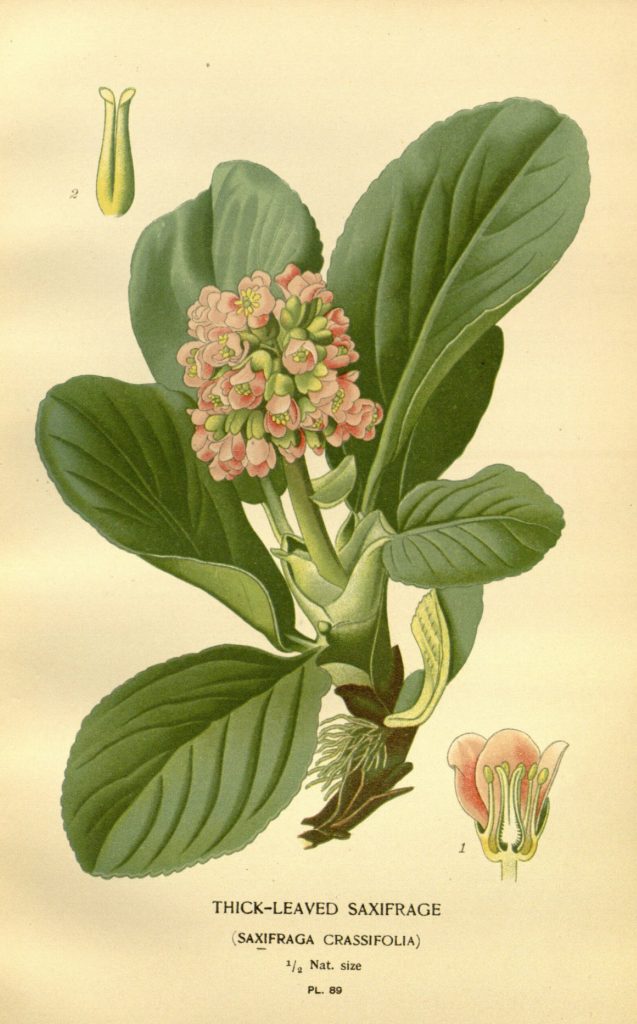
Bergenia crassifolia, commonly called leather bergenia or pig squeak, is a large-leaved evergreen perennial that is native to rocky cliffs from northwest China to Siberia. Rosettes of leathery, fine-toothed, obovate-rounded green leaves (to 8″ long by 7″ wide) form dense, slowly-spreading clumps of foliage to 12″ tall. Lavender pink flowers bloom March to early May in panicles atop rigid leafless stalks rising to 18″ tall. Flowers will bloom as early as December in warm winter climates, hence the additional common name of winter blooming bergenia. Although evergreen, the leaves of this plant often become brown and battered in cold winter temperatures.
Genus name honors Karl August von Bergen (1704-1759), German physician and botanist.
The specific epithet comes from the Latin words crassus meaning thick and folia meaning leaf in reference to the leathery leaves.
The common name of pig squeak is in reference to the noise produced by rubbing a leaf between thumb and finger.
(Source: Missoury botanical garden)
from Wikipedia:
Bergenia crassifolia is a plant species in the genus Bergenia. Common names for the species include heart-leaved bergenia, heartleaf bergenia, leather bergenia, winter-blooming bergenia, elephant-ears, elephant’s ears, Korean elephant-ear, badan, pigsqueak, Siberian tea, and Mongolian tea. The species epithet crassifolia means “thick-leaved”, while the epithet in the synonym Bergenia cordifolia means “cordate (heart-shaped) leaf” (although the leaves may also be described as spoon-shaped). It grows to about 12 inches (30 cm) tall. The leaves are winter hardy in warmer climates and change color in the range of rust brown to brown-red. It is a widely-grown garden plant; cultivars include Bergenia cordifolia ‘Purpurea’, Bergenia cordifolia ‘Winterglut’, Bergenia cordifolia ‘Senior’, and Bergenia crassifolia ‘Autumn Red’.
Bergenia crassifolia is used as a tea substitute in its native Siberia, Altay and Mongolia. The plant contains the polyphenols arbutin, kaempferol 3-lathyroside, catechin 3-O-gallate, tannins and the pectin bergenan.